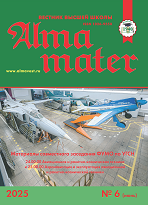UDC 316.36+305
https://doi.org/10.20339/AM.01-23.107
Cholpon I. Saadanbekova, Candidate of Philosophy, Associate Professor of Kyrgyz National University named after Jusup Balasagyn, e-mail: cholponsaad@gmail.com
Cholpon S. Usupova, Dr. Sc. (Philosophy), Professor, Department of Philosophy and Social Sciences at I.K. Akhunbaev Kyrgyz State Medical Academy, e-mail: usupova.tcholpon@yandex.ru
Maryam Shysyr, Graduate student of Kyrgyz National University named after Jusup Balasagyn, e-mail: Shisyrm@gmail.com
This article examines the influence of social institutions on the socialization of gender. Gender socialization forms the gender division that exists in society. A person who is socialized based on his gender is highly likely to reproduce gender stereotypes later. The most important impact on socialization is influenced by the family, society, and the media. The family is a unique social institution, an intermediary between the individual and the state, a translator of fundamental values from generation to generation. School is an effective institution in the formation of a person’s personality. The media is an institution of mass communication that operates according to certain rules. In this regard, gender socialization is hierarchically affected in the family – society – education – media – self-awareness – self-realization complex.
Keywords: gender, gender socialization, social institutions, family, school, mass media, man, woman.
References
1. Golod, S.I. Monogamous family: crisis or evolution? Socio-political magazine. 2015. No. 6. P. 87–88.
2. Golod, S.I. Family stability: sociological and demographic aspects. St. Petersburg: News, 2018. P. 108–109
3. Ivanova, Yu.V. Historical and philosophical approach in the study of gender as a metaphor and social stratification. ONV. 2017. No. 1 (51). P. 80–83
4. Kardapoltseva, V.N. Femininity as a socio-cultural construct. Vestnik RUDN. 2019. No. 1 (8). P. 68–69.
5. Martynova, T.N. Gender Problems of Higher Education. Fundamental Research. 2020. No. 2. P. 34–36.
6. Naumenko, M.V. Sociocultural factors of gender socialization of adolescents in a transitive society. Humanities and Social Sciences. 2019. No. 2. P. 266–267.
7. Naumenko, M.V. Ibid. P. 267–268.
8. Omelchenko, E. The formation of gender: Who and what helps us to become ourselves, as well as women and men. Moscow: Zvennya, 2016. P. 101–103.
9. Zadvornova, Yu.S. Tendencies of transformation of gender relations in the family in the studies of domestic sociologists. Woman in the Russian society. 2019. No. 4 (61). P. 87–88.
10. Fukuyama, F. The End of History and the Last Man. Moscow: AST, 2018. P. 231–233.












.png)






